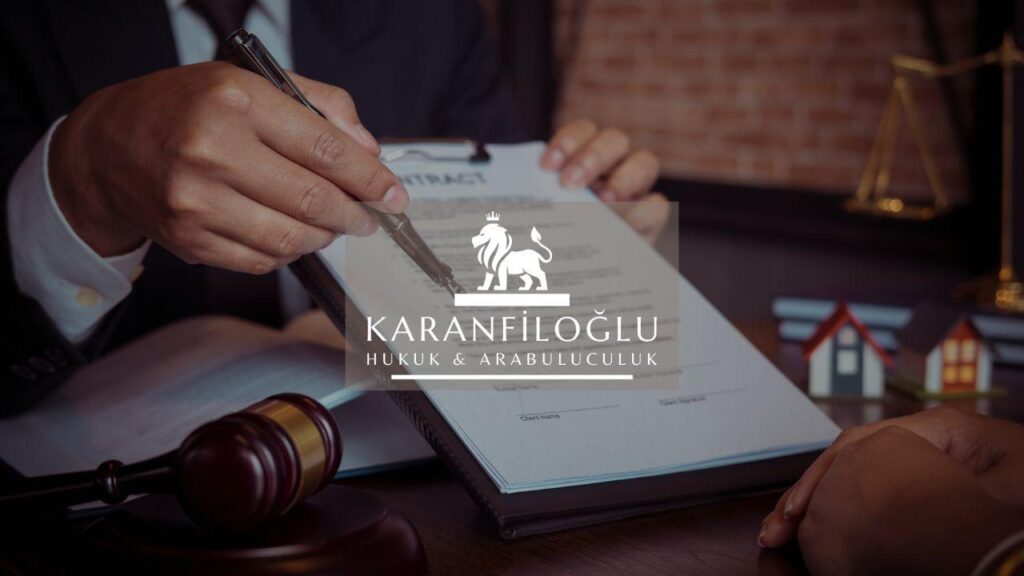Navigating the complex landscape of Turkish immigration can be a daunting experience without the guidance of a seasoned legal expert. At Karanfiloglu Law Office, we understand the intricacies of statutes such as the Law on Foreigners and International Protection (Law No. 6458) and the Turkish Citizenship Law (Law No. 5901), both essential in guiding the immigration process. With amendments and regulatory adjustments frequently altering the legal scene, foreign nationals seeking residence, work permits, or Turkish citizenship find it crucial to have knowledgeable support. The steps from obtaining a residence permit to initiating citizenship applications require careful adherence to procedural requirements and documentation standards. Moreover, specific details such as the conditions outlined in Article 31, governing the issuance of residence permits, or the requisites for citizenship under Article 11 and 12, can pose significant hurdles without expert intervention. Our goal is to provide clarity and proficiency in navigating these legal channels, ensuring a seamless transition for individuals and families alike.
Understanding Turkish Visa Requirements
Understanding Turkish visa requirements is fundamental for anyone planning to enter Turkey, as these regulations establish the foundation for legal entry into the country. The types of visas available are determined by the intended purpose of stay, including tourist, student, and work visas, each governed by distinct stipulations outlined in Article 18-20 of the Law on Foreigners and International Protection (Law No. 6458). Applicants are required to submit a meticulously detailed application through the Turkish consulates in their home country, which must include valid identification, a passport with sufficient validity, proof of purpose of travel, financial means, and insurance coverage, as stipulated under specific provisions of the Regulation on the Implementation of the Law on Foreigners and International Protection. Non-compliance with these requirements can result in entry refusals or future visa denials, underscoring the importance of precise adherence to established criteria and timelines.
For individuals seeking a work visa, a pivotal initial step is securing a job offer or employment contract from a Turkish employer, as mandated by Article 55 of the Law on Foreigners and International Protection (Law No. 6458). The employer plays a crucial role by filing an application with the Ministry of Family, Labor and Social Services within ten days after the foreign national’s application at the consulate. Essential documents include the work contract, employer’s authorization, and a notarized version of the foreigner’s passport, as stipulated by the International Labor Force Law (Law No. 6735) and related regulations. Compliance with these responsibilities rests with both the prospective employee and employer, ensuring all documentation is accurate and deadlines are strictly followed. This meticulous process helps mitigate any potential issues in obtaining the work visa, allowing the foreign national to embark on their professional journey in Turkey smoothly and in full accordance with legal requirements.
In the case of student visas, aspiring students wishing to study in Turkey must secure an acceptance letter from a recognized Turkish educational institution prior to commencing their visa application, as specified under Article 38 of the Regulation on the Implementation of the Law on Foreigners and International Protection. This acceptance proves the applicant’s intention and eligibility to pursue educational activities in the country. Additional documentation, including proof of financial resources to support the stay and evidence of accommodation arrangements, is mandatory to satisfy the provisions outlined in Law No. 6458. The meticulous preparation of these documents is essential, as any discrepancies or gaps in information can lead to rejection by Turkish authorities. At Karanfiloglu Law Office, we advise students to begin their application process well ahead of their planned entry date, ensuring all criteria are thoroughly met. Our expertise enables students to navigate these rigorous requirements with confidence, reducing the risk of refusal and facilitating their transition into Turkey’s vibrant academic environment.
Essential Documents for Residency Applications
For those pursuing residency in Turkey, assembling a complete and accurate set of essential documents is a critical initial step. According to the Law on Foreigners and International Protection (Law No. 6458), applicants need to provide a valid passport or travel document, proof of financial stability, and health insurance covering the duration of their stay. Furthermore, Article 33 of the same law mandates an application form and four biometric photographs. Depending on the type of residence permit sought, additional documents may be required, such as a rental agreement for housing verification, as stipulated under Article 31. Each document must be authenticated and appropriately translated, if necessary, to ensure compliance with Turkish legal standards, a process that Karanfiloglu Law Office can adeptly guide clients through, ensuring each requirement is meticulously met to enhance the prospects of a successful application.
Submitting a meticulously organized application is vital for a successful residency permit outcome. For example, individuals applying for family residence permits under Article 34 will need to present proof of familial ties, such as marriage certificates or birth certificates. These documents must be officially certified and translated by a sworn translator. Additionally, employment-based residency applicants should prepare a work contract or letter of intent from a Turkish employer, aligning with the stipulations of Article 31. Ensuring the accuracy and compliance of financial documents, such as bank statements or income proof, is essential, as discrepancies can lead to delays or rejections. At Karanfiloglu Law Office, we emphasize the importance of early document preparation and verification, offering in-depth consultations to prevent common pitfalls associated with insufficient or mismatched documentation. By engaging our services, applicants can confidently navigate the intricate documentation landscape, knowing that their submissions align with Turkish legal requirements.
As the final step in the residency application process, the submission and follow-up stages require diligent attention to ensure all protocols are smoothly adhered to. According to Article 100 of the Law on Foreigners and International Protection, applications are submitted to the Directorate General of Migration Management, where each aspect of the application undergoes thorough scrutiny. It’s crucial for applicants to prepare for potential interviews or requests for additional information, which may arise to verify the authenticity or completeness of the submitted documents. At Karanfiloglu Law Office, our legal professionals offer unwavering support during this critical period, equipped to handle any correspondence with local immigration authorities effectively. Our personalized approach ensures that our clients remain informed and prepared for each step, easing the navigation through Turkey’s administrative processes and minimizing any associated stress, thereby enhancing the likelihood of a successful and timely approval.
Challenges and Solutions in Turkish Immigration
Navigating the intricacies of Turkish immigration can present significant challenges, primarily due to the frequent legislative amendments and regulatory changes. These adjustments can make it difficult for foreign nationals to stay informed about the most current requirements and processes. For instance, the conditions for obtaining a residence permit, as stipulated in Article 31 of the Law on Foreigners and International Protection (Law No. 6458), vary depending on the purpose of stay, whether for work, education, or family reunification, necessitating careful documentation and procedural adherence. Furthermore, the transition from a residence permit to citizenship can be arduous, requiring compliance with the conditions under Articles 11 and 12 of the Turkish Citizenship Law (Law No. 5901). Solutions lie in seeking comprehensive legal guidance from experienced professionals, like those at Karanfiloglu Law Office, who can elucidate these complexities, ensuring all procedural requirements are meticulously followed to mitigate potential setbacks.
One notable challenge in the Turkish immigration process is obtaining work permits, which is essential for foreign nationals intending to work legally in Turkey. As per Article 6 of the International Workforce Law (Law No. 6735), work permits are issued based on various criteria, including the applicant’s qualifications and the sponsoring employer’s profile. The application process demands precise documentation, including proof of employment, qualifications, and sometimes an employer’s petition attesting to the necessity of hiring a foreign employee. Inconsistent submissions or misunderstandings of the specific requirements often lead to delays or denials. To overcome these obstacles, it is crucial to engage professionals who can provide tailored advice, ensuring all documentation is not only complete but also presented in accordance with the expectations of the Ministry of Labor and Social Security. At Karanfiloglu Law Office, our expertise in navigating such complexities enables us to assist clients in streamlining the process, thus enhancing their chances of a favorable outcome.
Another area that presents challenges in Turkish immigration is the acquisition of long-term residence permits, as highlighted in Article 42 of the Law on Foreigners and International Protection (Law No. 6458). Foreign nationals aiming for long-term residency must have continuously resided in Turkey for at least eight years, without receiving any social aid from public institutions, and must demonstrate enough resources to support themselves and their family. Moreover, they must have valid health insurance and pose no threat to public order or security. This demanding set of criteria can be daunting and confusing for applicants. To effectively navigate these challenges, seeking professional assistance becomes essential. At Karanfiloglu Law Office, we are adept in interpreting and applying these complex legal standards, providing clients with strategic insights tailored to their individual circumstances. Our committed approach ensures that clients meet all necessary conditions, thereby smoothening their path toward securing long-term residency in Turkey.
Disclaimer: This article is for general informational purposes only and you are strongly advised to consult a legal professional to evaluate your personal situation. No liability is accepted that may arise from the use of the information in this article.







